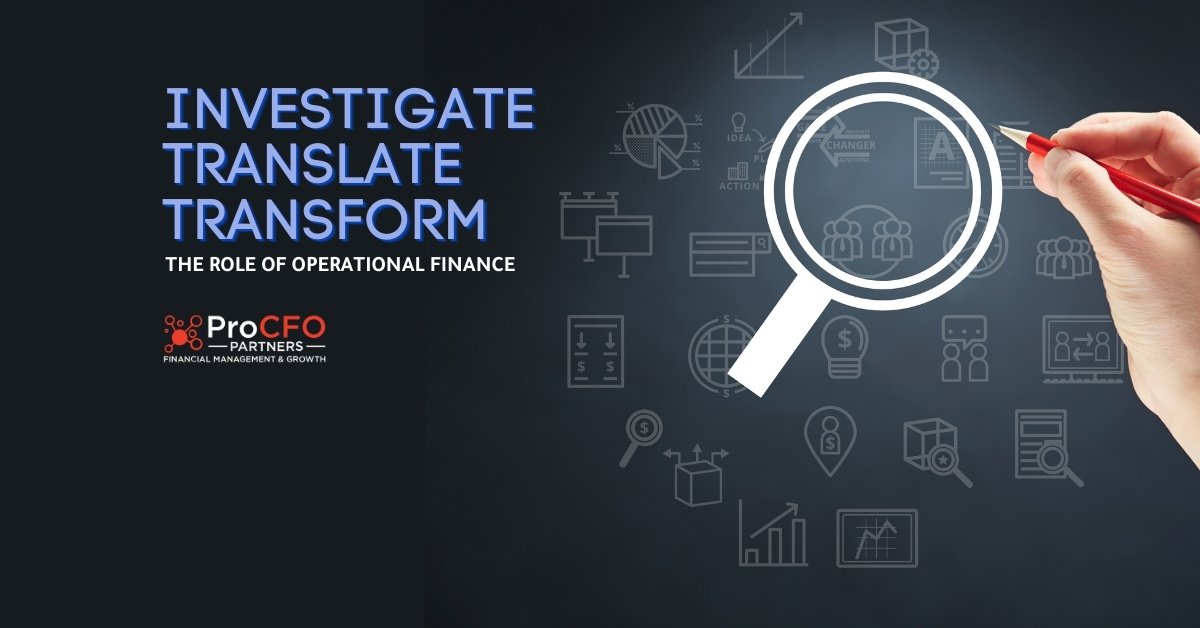Investigate, Translate, Transform: The Role of Operational Finance
Dec 3, 2020
Business leaders like CEO’s or business owners have an intimate sense of their business. When something in the business can start to go amiss, sometimes it’s these leaders who know it first, though at a gut-sense. They have a feeling something’s not right. In the same sense, these visionaries can see potential and opportunities before anybody else. And sometimes sense and feelings have nothing to do with it – the data is there, indicating a direction for the business to follow. Making sense of the data – or making the hunches and ideas actionable – is an important function of operational finance and the CFO with operational skills.
Investigate: Making Metrics Actionable
A realistic scenario in your business might be recognizing performance on a monthly Profit & Loss statement doesn’t meet expectations by 5% or 10%. Understanding why, and how to get that percentage back, requires actionable insight.
Operational finance takes a financial metric, such as a 10% miss in performance, and digs into understanding at an actionable level what caused the change in trend or expectations. When the understanding is actionable, a plan for execution and achievement can be put together.
Translate: Making Sense of the Metrics
A common problem in businesses is to have dashboards and reports readily available, but for no meaning or context to exist around the numbers. To understand the key performance indicators and their relevance to business performance and direction, a CEO or owner needs to understand the layers involved beyond general indications. This might involve different departments or business units, or different aspects of the business such as inventory or debt. The ability to understand all these moving parts falls on the capable CFO. A good CFO is going to know not just the financial metrics of the business, but how the business runs, its direction and potential, and its strengths and opportunities almost as well as the CEO. The CFO can translate data into meaningful, contextual insight.
Transforming The Company With Operational Finance
With a culture of investigation comes a willingness to look deeper into issues. When metrics and analytics can be better understood, they become more relevant to the direction and vision of a company. The leadership of a strong CFO can steer companies away from being reactionary to data. This comes from asking why, and having open dialogues with other leaders and decisions makers. A company that can transform into become curious comfortable with questioning has the advantage of making better, more clear-minded decisions.
Data exists everywhere. It’s understanding what data is important, not only from a financial perspective, but how it translates to an operational perspective where actions can be taken to achieve new goals.


